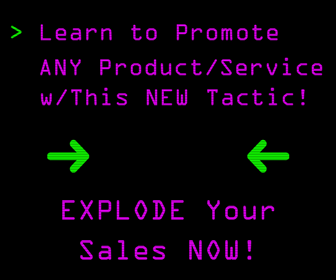 The stages of evolving as a small business owner involve a lot of factors, such as profit and volume. There’s a lot involved in running a business, and sometimes it can feel overwhelming. That’s why we offer a free webinar training to help small business owners wade through the murky waters and come out strong on the other side. As an online business evolves, a business owner should have set goals in place, but recognize those goals may change. However, if they stay on this route, success and becoming profitable should happen in the end.
The stages of evolving as a small business owner involve a lot of factors, such as profit and volume. There’s a lot involved in running a business, and sometimes it can feel overwhelming. That’s why we offer a free webinar training to help small business owners wade through the murky waters and come out strong on the other side. As an online business evolves, a business owner should have set goals in place, but recognize those goals may change. However, if they stay on this route, success and becoming profitable should happen in the end.
Inc. recognizes how essential it is to set goals, especially as a new company. They have some examples of a few goals you can set so you can start your business out on the right foot.
Setting Goals
All in all, I think the goals above are valid and pretty accurate, but knowing your focus and executing that focus are very different things. Here is how I help my startup founders stay focused.
Take a read. Assess where you are in the startup life cycle. Knowing the starting point is the only way to finish a race.
Determine the KPIs. Key Performance Indicators are measures that materially reflect your business's health and trajectory. They include things like revenue per user, daily active users, and assets under management. Each startup must find the one that is most informative. By focusing on lines, not dots (in the parlance of investors, dots are single data points, while lines are trends made up of many dots), startup stakeholders ensure they are trading vanity metrics for true KPIs.
Explicitly and mindfully agree on the next goal (volume, revenue, etc.). Post that goal for the entire team to see. Update it regularly and have weekly accountability sessions where key team members share their progress and how they're impacting the KPIs.
Celebrate wins. Any material impact to the KPIs should be celebrated. This reinforces the goal and helps everyone stay focused.
Review regularly. Quarterly goal setting is my recommendation.
By mindfully and explicitly focusing on one race, one goal, and one KPI at a time, the most successful founders can drive the evolution of their business.
Business Collective reinforces how vital it is to create your own vision and ask yourself crucial questions that will improve your vision. Asking yourself clear and direct questions will also help you develop a stronger business in the long run.
Create Your Vision
Ask yourself the hard questions:
How big do I want my company to be?
What is my company known for? What do I want it to be known for?
How do I want my employees to feel about their jobs?
What industries do we want to work in?
What will my role be?
What does our every day workload look like?
How do we measure success?
These questions aren’t new. Countless business planning books and websites offer similar, if not the same, questions. The answers – your answers – will provide the insight you need in order to know what you need to do to grow your organization.
Create the Map to Meet Your Vision
Once you know what you’re trying to achieve and understand what’s happening in your business, create the barebones plan.
Use the financial reports you’ve gathered to check your margins. I haven’t run across a company yet that wasn’t trying to increase their revenue year to year. Are you profitable? Do competitive research to determine if your pricing is in line with your competitors. Is it time to raise your prices? A small increase in pricing can make a huge improvement to the bottom line.
Grow business within your current clientele. It is less expensive to keep clients than to acquire new ones. Upselling a current client, who knows and trusts you, is also much easier. Find their pain points and determine where else you can help them. Do you need to change your service levels, add additional products or even create a passive income stream leveraging a relationship with current clients?
Examine your processes. Time is money. Increasing efficiencies can decrease costs and improve your overall company performance. Do you have enough people? Do you have the right people? Are they doing things as efficiently as possible?
As you continue growing your business, another part of following through with your goals is keeping track of your competitors. According to Entrepreneur, you can learn a lot about the company you’re focused on by watching other businesses. Is something working for them? Great! See what is working for them and try to replicate their actions.
If your competitor is doing well, then find out how they are doing so. How do they reach their customers? What kind of feedback are they getting? How could you do better? What could you do differently?
Instead of getting anxious about what your competitors are cooking, study them. Learn from their failures as well as from their success. Having competition is a good thing. Learning from other people in similar businesses will give you an edge which you can apply in your own business.
While managing family expectations isn’t a goal per say, it is something you need to work on so that you can follow through with your business goals. Be honest with your family on what your work hours are. Then follow through with what you agree on so you can all abide by good work and life boundaries. The Score blog has more thoughts on managing family expectations below:
Having your kids home from school in the summer can throw your daily routine far off track. Older kids can work with you to uphold quiet hours when you can work and they read or play quietly. Smaller children may require you to limit your working hours to nap times if you can’t find child care.
There may be lower-cost alternatives if day camp isn’t in the cards for your family. Half-day camp programs at your local Y or library educational programs can help you squeeze in a few hours of work. Plus, they’ll keep the kids from getting bored.
If other family members have a hard time remembering you still have to work during the summer, you’ll have to have a conversation about your work hours and how those family members can respect your business time.
As you continue to grow your business, remember to take some time to pause. When you break, think about your past successes and failures. You can learn many things from both of these elements, which is why IOU Financial says to study them and use these life skills to your advantage moving forward.
Many successful businesses are able to not only reflect on what worked but also on what did not. Don’t just chalk wins and losses up on a tally board. Instead,explore why something worked or didn’t so you know what to avoid or do more of in the future. Businesses that survive the long term are ones that can identify where they hit the mark but also where they may have missed. Take the time to pick your head up from the day to day tasks to reflect and reposition based on what you’re seeing.
By staying focused on your goals, your business can weather the storm of distractions, market challenges, and day-to-day unpredictable moments. Being a small business owner doesn’t exclude a person from big time distractions, but staying focused in a structured way can help any business owner succeed.
NBC News also recommends taking time to think so you can continue to focus on what you do best — succeeding and bringing in profit!
If you are going to make any impactful change, you have to commit to it on a regular basis. Schedule time to think and keep that appointment. Think beyond the nuts and bolts of business development and give yourself the space to be creative. It's easy to lose your creativity when you're focused on the day to day.
Last, but certainly not least, Allison Maslan on her blog urges business owners to look at their company as a whole and not separate entities. Doing this will help them zero in on what they should be focusing their time and energy on the most.
A lot of people think they’ve really hit the nail on the head once they learn how to maintain focus on an entire day’s worth of work, and this is certainly worth striving for. However, I recommend getting crystal clear on your Big Picture Vision, and focus on your long-term goal. How can you get where you are going, if you don’t have a destination in mind? Then if someone asks you to do something or an opportunity arises, ask yourself, “Will this get me to my Big Picture Vision?” If the answer is no, then say, “No!” You see, to make room for more, “Yes”, in your life, you need to set boundaries and say, “No” more often. So the next time you find your mind wandering, keep in mind how much more you can get done in a day’s time with the right amount of focus. I know you can do it!
Join us during our next free webinar training where you can learn with other business professionals about following through with your goals and developing a profitable and successful business.
Sources: Inc., Business Collective, Score, Entrepreneur, IOU Financial, NBC News, Allison
CHALLENGE Yourself to Profit!
Free Download: Build Your Profit-Generating Online Business With This Free Blueprint
Sign Up, follow the easy steps and You'll get the tactics, strategies & techniques needed to create your online profit stream. It's free!



